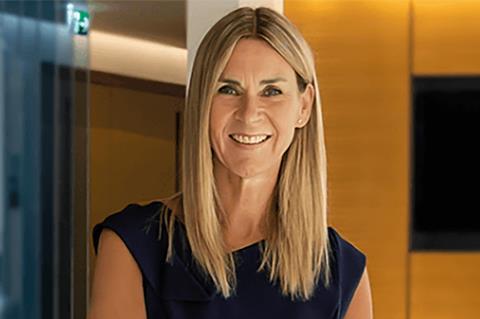Senior partner, Reading

I come from a resolutely working-class background. My dad was a painter and decorator, as are my two brothers. My dad worked incredibly hard. While this gave me a fantastic work ethic, with weekend and part-time jobs from an early age, there was no expectation I would go to university and certainly not law school. My dad expected me to leave school at 18 to find a job. My A-level French teacher – also the careers teacher – guided me towards law. I had no clue what I wanted to do in terms of a job, but an early stint picking up rubbish on Epsom racecourse following race day certainly made me want options – and he said that a law degree would give me plenty of options.
I joined Boyes Turner as their second female partner and the first to request a three-day week following the birth of my son. Fortunately, Boyes Turner was and still is a progressive, supportive firm, so it was not a problem. Over the years I went from three days a week, to four, to going full-time once my children were at secondary school. Even pre-pandemic, I’d always worked one day a week at home.
I became a single parent when my children were six and four and was already juggling working part-time. They’re 21 and 19 now. I’d joined Boyes Turner as a junior partner. It was that tricky time in a career when you’re still trying to prove yourself and go the extra mile while still having some flexibility around your children. There are always the extra-curricular elements to factor in too; so much of business development and networking happens outside office hours.
I live in a small village, with my parents only 20 minutes away. I had a fantastic child-minding husband and wife team who became a home from home for my children and friends to me. Because it was a close-knit village school, I also had six or seven friends I could text to pick my children up if a meeting overran or I had to attend an event at short notice. Without that support network, I simply wouldn’t have been able to do it.
'You need senior leaders authentically championing this work. It’s not enough to just say you’re inclusive. You need to be able to show this is your lived experience and part of the firm’s culture'
A lot of the work we do with inclusion involves modelling. This means that colleagues coming through from diverse backgrounds have that role model visibility and can see someone who has trod the path ahead of them within the firm. My focus is social mobility because of my background but whether it’s mental health, ethnicity, gender or sexuality, you need senior leaders authentically championing this work, going beyond lip service for marketing copy. It’s not enough to just say you’re inclusive. You need to be able to show this is your personal and lived experience and part of the firm’s culture.
I am currently part of the EDI leadership team at Boyes Turner. We’re part of the Breaking Down Barriers to Law programme that brings together leading regional law firms to look at how meaningful change can be achieved across the profession. Next year we will launch our apprenticeships, which I am very excited about. This would have been an attractive route to me when I was 18, coming from the background I did, and even more so had I not been fortunate enough to receive a full grant to go to university.
I knew I wanted to specialise in PI early on. I spent most of my training contract in a general litigation seat which was less specialised back then and included employment, licensing and insolvency work, but it was the human-interest side of PI that I absolutely loved.
As a discipline it’s evolved so much over the years. When I first qualified, you’d be juggling huge caseloads with a view to getting a lump sum for your client at the end. Now, the real focus from the outset is on rehabilitation. The most important thing is accessing that rehabilitation as early as possible for my clients to maximise recovery and optimise their potential in the future as they adjust to living with life-changing injuries.
It’s not always the big wins that make the difference. I worked with a young woman who was left with some ongoing weakness down one side of her body following a brain injury. Once she was out of the acute stage, two of the rehab goals most important to her were to be able to paint her own nails and to dry her own hair again – and she smashed that! It’s about what matters to the individual client.































No comments yet